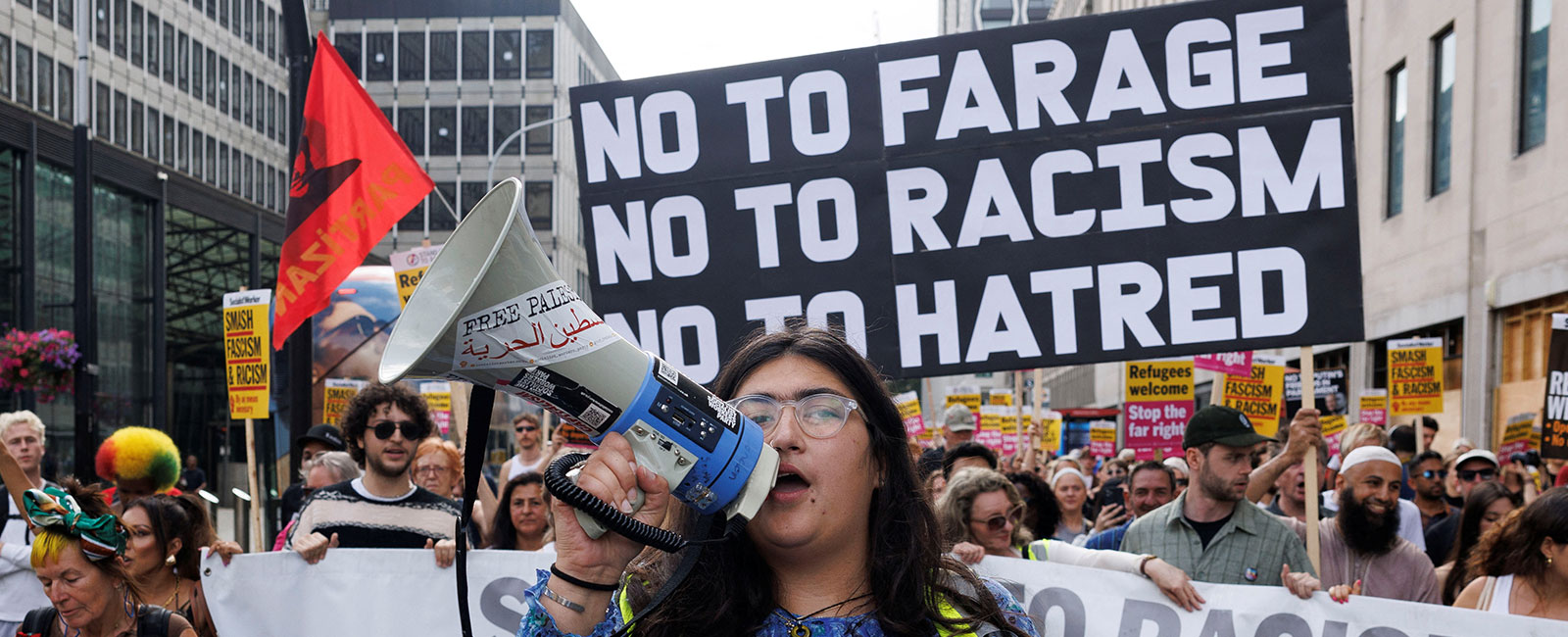Amid rising UK far-right fury, dilemma deepens for Muslim students
The aftermath of the Southport incident wasn't an isolated incident but was what can be crudely termed a climax of the simmering sociopolitical discord that has been brewing for years

"Fear is always there," said Sana Batool, a Pakistani student pursuing a doctoral degree at Falmouth University in Cornwall, United Kingdom, as Muslims across the country brace for the aftermath of the Southport knife attack amid the ensuing chaos that has spiralled from this unfortunate incident.
The mayhem erupted after a 17-year-old teenager killed three girls—Bebe King, aged six; Elsie Dot Stancombe, seven; and Alice Dasilva Aguiar, nine. However, the incident was wrongly attributed online to "a Muslim asylum seeker," prompting far-right activists, supporters, and sympathisers to unleash "vengeance" on the Muslim and migrant communities. The alleged perpetrator has since been identified as 17-year-old Axel Rudakubana of Rwandan descent, who has no apparent connection to Islam or the Muslim community in the UK.
Batool, currently visiting her home in Karachi and due to return to the UK in September to continue her studies, is left in a quandary regarding her journey back and what awaits her in Cornwall in light of the recent far-right protests fuelled by a dangerous mix of xenophobia, racism, and Islamophobia. The recent riots have seen mosques, immigration centres, shops and businesses owned by Muslims and immigrants being targeted and vandalised.
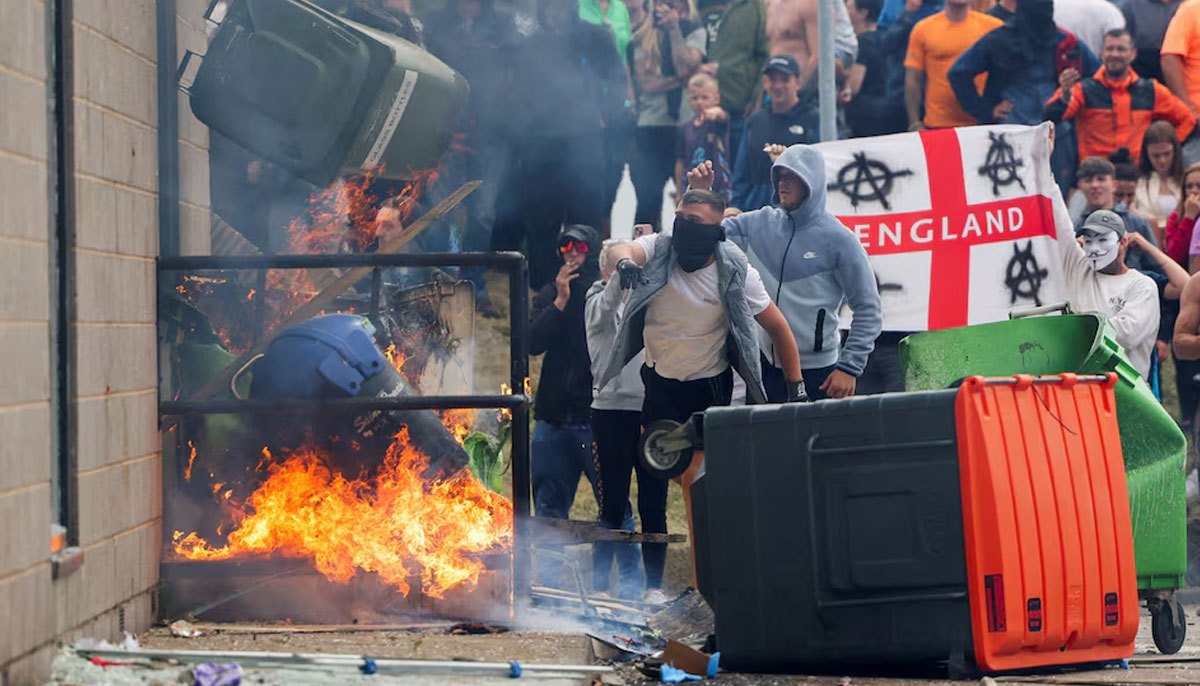
These concerns, however, are not limited to her, as thousands of other international students, specifically Muslim students from various ethnic and racial backgrounds, are either currently residing in the UK or preparing to fly to the island nation for their academic pursuits. With September marking the start of the academic year at universities, they too share the same worry — unsettled by the state of affairs witnessed in Albion.
Reflecting on her time spent in Cornwall — a ceremonial county that hasn’t seen much turmoil likely because it hosts a low percentage of immigrants — the doctoral student paints a rather couthy picture, terming the locals welcoming and supportive of the "guests".
However, Muslim students and immigrants living in the Midlands, the central part of the country, haven’t been that lucky and have faced the brunt of Islamophobic and xenophobic attacks and attitudes, which existed before the Southport stabbing in the form of isolated incidents, have significantly exacerbated since July 29.
Batool's "fears" are not rooted in her own experience, as she hasn't faced any kind of discrimination or hatred emanating from racist, xenophobic or Islamophobic prejudice. Her experience in the UK involves supportive and welcoming Britons such as her supervisor and landlord who have been in contact with her regarding her return to the UK, which is due next month, advising her to take the safest route/mode of transport possible.
Her experience, in contrast to what happened in recent weeks, isn't limited to her but is quite similar to that of Abbas Ali, a Pakistani student pursuing an MSc in Sports Performance Analysis at the University of Gloucestershire.
He termed his experience as an international student "positive" at the varsity, where he felt "welcomed" by his local peers, despite being one of the few international students, as they never let him feel "different".
Despite both Batool and Abbas's account of not having experienced racial, and religious discrimination and hatred, the statistics reflect a rather bleak reality where the UK's Muslim population, more than 3.8 million strong, as per the 2021 census, has been in the crosshairs of religious prejudice driven hate crimes.
This is reflected in the Hate Crime Statistics 2022/23 (Published on January 15 2024) — England and Wales, excluding Devon and Cornwall — of the UK government wherein British Muslims faced 44% of the total hate crimes due to their religion. With 3,400 hate crimes — out of a total of 7,756 offences — during this period, the Muslim population faced more than double the hate crimes faced by the UK’s Jewish community with 1,510 cases amounting to 19% of the total offences.
Henceforth, Batool's "fear," though not based on her personal experiences, stems from the experiences of others who have faced similar issues. For instance, when her friends had their scarves pulled off in London, it left her and her peers feeling unsafe when out after sunset during her visits to the Midlands.
Her concerns fall in line with the statistics reflected in the government brief — citing the data collected by Measuring Anti-Muslim Attacks (Tell MAMA), an independent, non-governmental organisation that works with the UK government, in its “A Decade of Anti-Muslim Hate (2012-22) report — that revealed the persistent and prolonged history of Islamophobic incidents targeting the Muslim community.
Malicious act aimed at Muslims, their material property or Islamic organisations and where there is evidence that the act has anti-Muslim motivation or content, or that the victim was targeted because of their Muslim identity including incidents where the victim was perceived to be a Muslim
— Classification of an Anti-Muslim incident by MAMA
Furthermore, the statistics compiled in the survey titled "Attacks Upon Mosques and Islamic Institutions in the UK by Muslim Census and Muslim Engagement & Development (MEND), revealed that out of the 114 mosques it surveyed (out of the total 1,800 across the UK), 42% of the mosques or Islamic institutions experienced some kind of religiously motivated attack in the last three years — of which 17% also experienced physical assaults.
The data also disclosed that not only 35% of mosques witness a religiously motivated attack at least once a year but that only 55% of these institutions were satisfied by the police response out of the 85% that reported it in the first place.
The recent far-right protests fuelled by a rather dangerous mix of xenophobia, racism and Islamophobia which have seen mosques, immigration centres, shops and businesses owned by Muslims/immigrants being targeted and vandalised, have left her in a state of quandary as despite being in touch with her university supervisor, landlord and other acquaintances, Batool is considering deferring her return to Cornwall when people are being singled out on racial and ethnic basis whether they are English or not as well as being attacked if they aren't "native".
The riots, Batool added, even led an acquaintance of hers, another Muslim student in Exeter, Devon, to stop going out for groceries — a chore now being done by her friends.
'Severe' socioeconomic impact
Apart from the psychological aspect of the current turmoil, the riots are likely to exacerbate the socio-economic challenges faced by international students of Muslim/Pakistani descent. The concern is evident in Batool and Abbas’s account of what this situation might mean for them and the thousands of others already struggling to find accommodation and part-time jobs to sustain their stay in the UK.
With the recent violence targeting businesses run by immigrants, Asians, and Muslims —traditionally more open to hiring students like her— Batool fears that more closures of such enterprises could severely dent the already scarce job opportunities.
Amid various job market challenges facing Pakistani students, Abbas believes the tensions have significantly affected those who work part-time to support their studies, particularly in the food delivery sector. Mainly after the far-right launched a campaign calling for a boycott of immigrant food delivery workers, making it even more challenging for students.
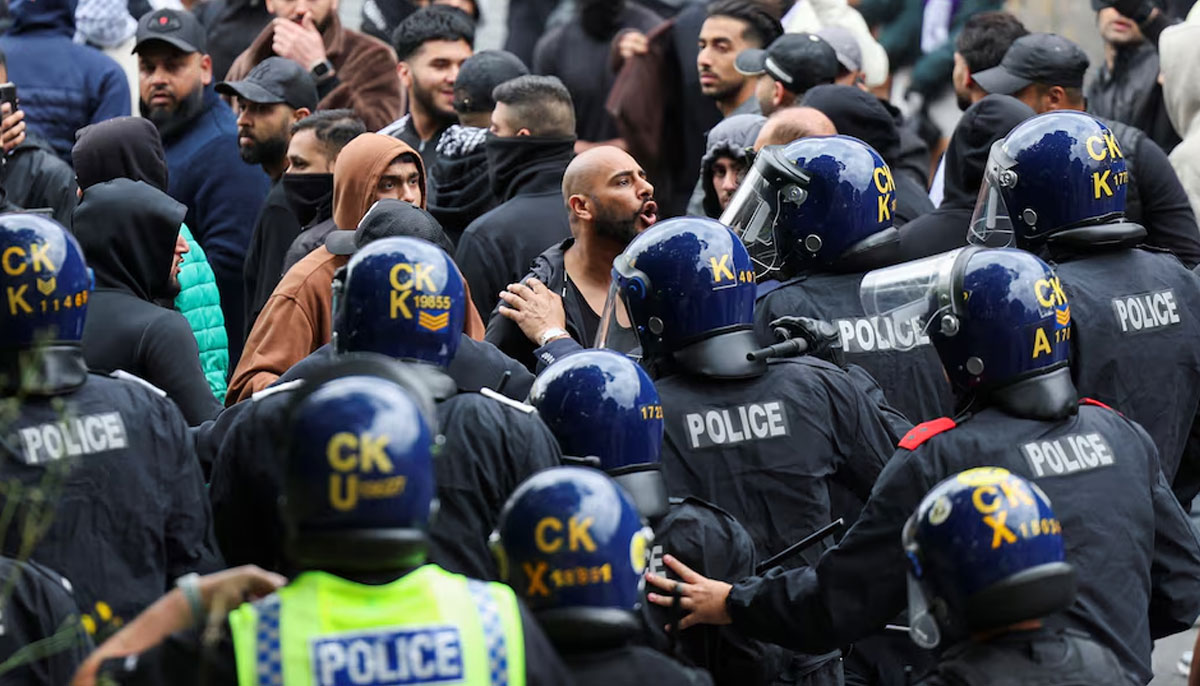
"As the graduates here outnumber the available vacancies, recruiters naturally choose the most qualified candidates," Abbas said.
The situation is further compounded by purported effects of what Samir Sweida-Metwally, a Postdoctoral Associate at the New York University Abu Dhabi, has termed the "Muslim Penalty", which according to him, co-exists with the prevailing ethnic, religious and culture-oriented labour market stratum coupled with the possibility of “country of origin penalty”.
Apart from the job market scene, which primarily relates to the economic aspect of what a Muslim, more specifically a Muslim Pakistani, student has to face, there’s the social aspect as well which plays an important role in finding accommodation in the UK.
One of the challenges Abbas faced was finding suitable accommodation close to his university, but he was unsuccessful. As a result, he had to settle in a different town, which increased his living expenses.
"Finding accommodation is already challenging for any student moving here for studies, but the riots and the negative impact of social media are likely to make it even harder," he said.
Epilogue
The anti-Muslim — or more specifically the anti-immigrant sentiment that has come to the fore in the recent riots — is driven by many things including a persistent rise of the far-right over the past several years.
A Commission for Counter Extremism report, "Operating with Impunity - Hateful Extremism: The need for a Legal Framework” issued in 2021, pointed out the legal and police-related lacunas being exploited by the far-right, which it said had reflected "a significant growth in [far-right] extremist actors and organisations, and an increasing shift towards recruitment and active dissemination of extremist content through online platforms" — something that was evident in the recent turmoil which saw social media platforms being misused to spread disinformation claiming the suspect to be either Muslim or having links with Islam.
Apart from pointing up the rise of Patriotic Alternative — a far-right group that the previous Conservative administration announced to assess under a new government definition of extremism, which claims to combat "replacement and displacement" of white Britons by people who they state "have no right to these lands" and portrays migrants as being a threat to the survival of the white society — the report highlighted how far-right activists misuse the free speech card to propagate their hateful narrative.
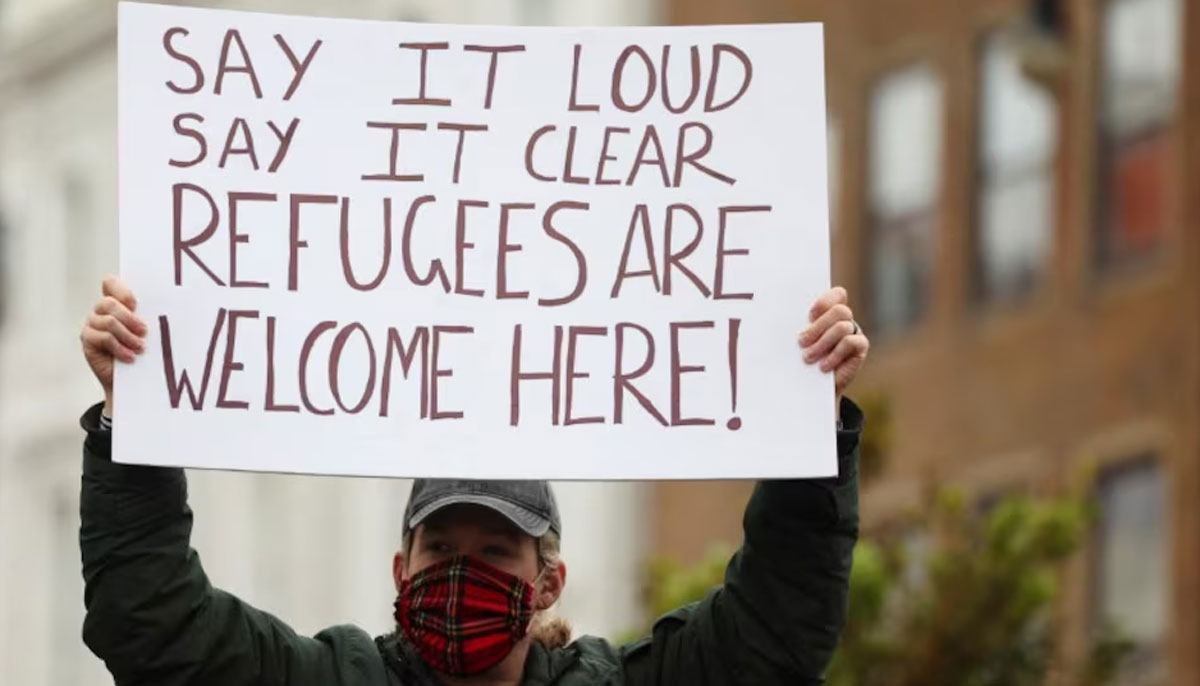
The argument that the rise of the far-right has been gradual but persistent is reflected in the increase in support for the Reform UK Party (formerly Brexit Party) whose 2024 election manifesto provisioned a hard-line stance against immigration and even goes as far ahead as proposing hiking national insurance rate of foreign workers to 20% to incentivise and encourage businesses to prefer employing British citizens over foreigners — which also include international students.
The party that bagged 644,257 votes (2.01% of the total) and didn’t win a single seat when it contested the 2019 polls, recently managed to secure 4.1 million ballots in the 2024 elections, winning 5 seats with a 14.3% share of the total vote count.
The development can be termed concerning, to say the least, as it reflects an increasing influence and popularity of far-right supporters across the UK which might result in future incidents including the prospect of clashes between far-right supporters and the Muslim/immigrant community living there, which is precisely what Batool fears. For instance, any kind of counter-reaction from the latter might just give another excuse to the former to repeat what we’ve recently witnessed.
The emergence of the far-right in the UK is not an isolated phenomenon, as similar socio-political trends can be witnessed in other parts of Europe. For example, in France, the Marine Le Pen-led National Rally and its allies secured 143 seats in the most recent polls, up from 89 seats in the 2022 legislative elections.
Mary Honeyball, an honorary research fellow at the Mile End Institute at the Queen Mary University of London said the rise of far-right as reflected in Italy, France, and the Netherlands coupled with the prospects of another Trump presidency reflected a "move to the extremes of right-wing politics" as a global phenomenon.
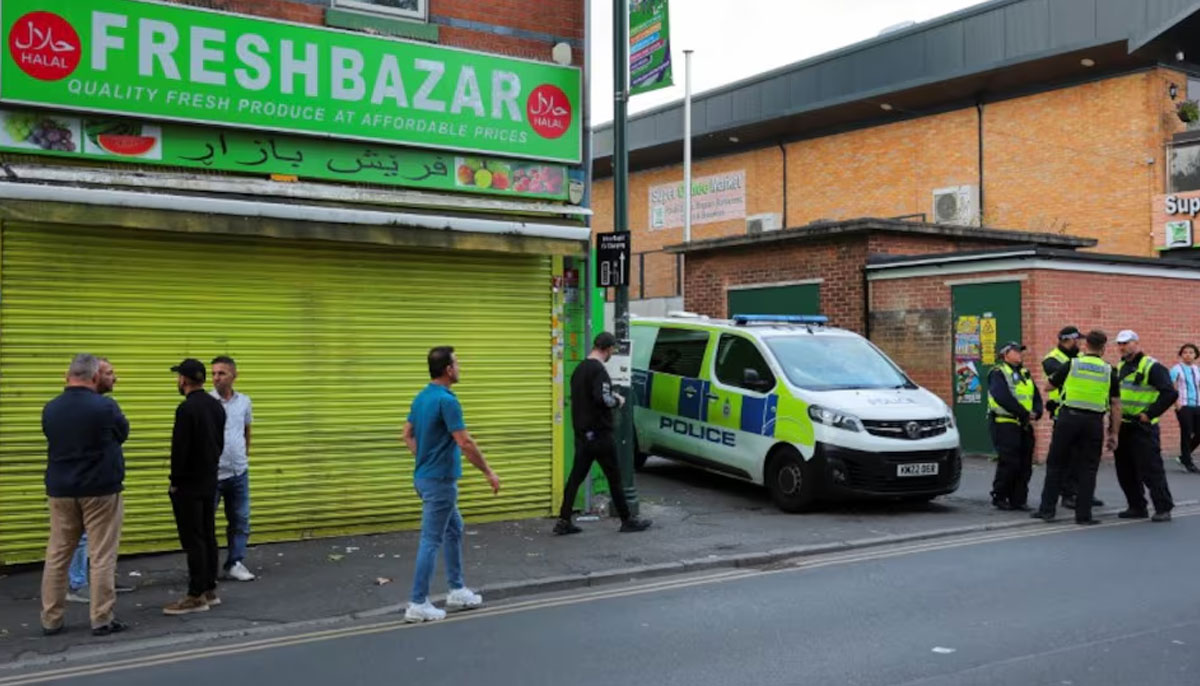
The aforementioned trends paint a grim picture as they not only reflect how deep the far-right roots go and how prevalent the issue is but also reflect the driving factors in the socio-economic and political domain that have affected the ideological fabric of the British society and will likely continue to do so in foreseeable future.
The aftermath of the Southport incident wasn't an isolated incident but was what can be crudely termed a climax of the simmering sociopolitical discord that has been brewing for years.
Despite Labour's relatively overwhelming return to power following the July polls, the recent political strides of the far-right in the 2024 elections indicate an increasing support for their ideology. Consequently, similar incidents may arise in the future, placing immigrant communities and international students, particularly Muslims, in a difficult position.
Saad Ahmed is a staffer at Geo.tv
Header and thumbnail image via Reuters



